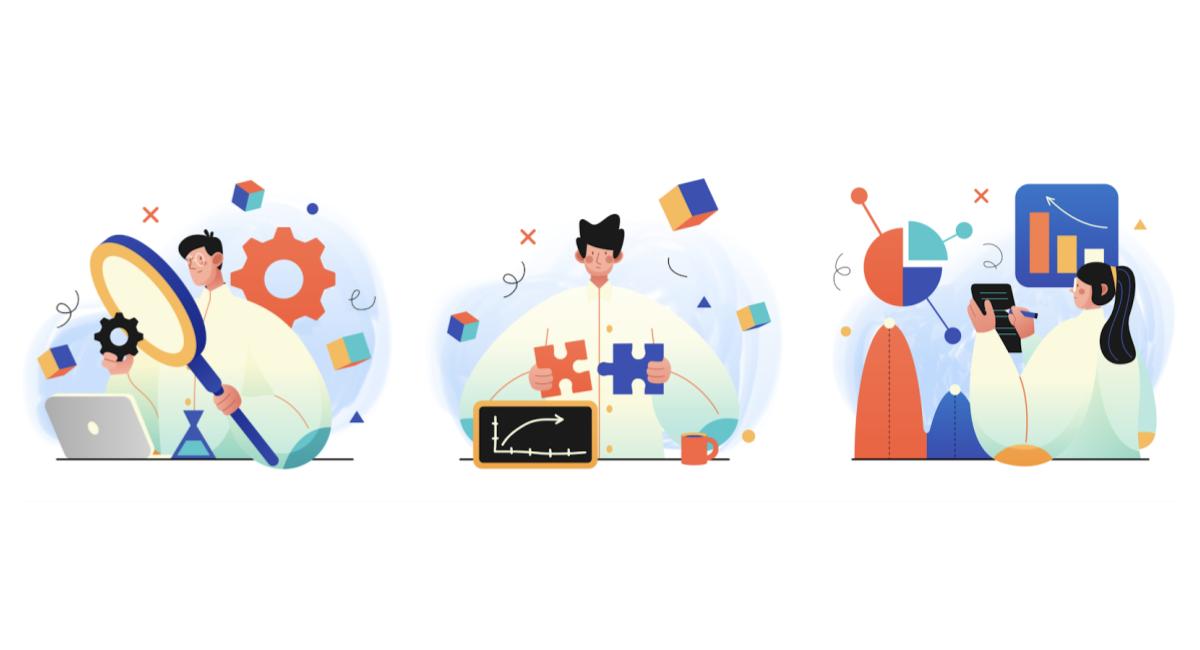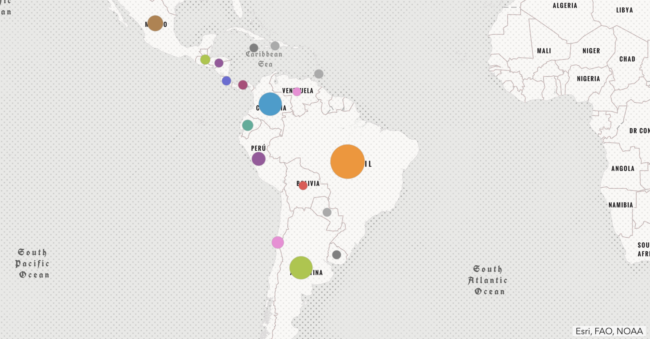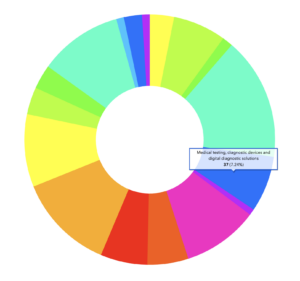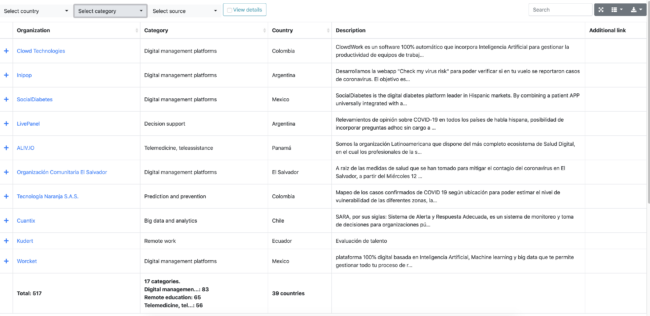Entrepreneurs are experts at mobilizing quickly and turning challenges into opportunities. In the context of the pandemic, the IDB Lab carried out a regional mapping exercise to visualize the solutions that are emerging from this network. This open data, presented with an intuitive interface, serves to facilitate collaborations, scale robust concepts, and highlight the capacity of creators in Latin America and the Caribbean. We invite you to explore the tool.
In just a few weeks, life as we knew it changed completely. The disruption of the pandemic became evident at all levels of society, defying expectations about how to manage business and finance, define essential services, and attend to people’s well-being in the midst of a global emergency.
Faced with this complex and dynamic context, entrepreneurs in Latin America and the Caribbean exemplified the meaning of pivoting. In an individual and decentralized way, they began to lead the creation of innovative and technology-based solutions, turning around their strategies, products and services to provide agile responses to the new needs generated by COVID-19.
Nevertheless, identifying the most relevant solutions requires collaboration. Actors such as accelerators, startup associations, investor networks, innovation agencies and co-working spaces began to identify the solutions emerging from their cities, countries and even other regions. A tremendous effort that reaffirms the importance of promoting inclusive and increasingly connected innovation ecosystems – to learn, connect, and scale solutions at a regional level.
A mapping of mappings: gathering data to highlight solutions across the region
The Map of LAC Innovators COVID-19 allows you to explore an interactive map of an open, united and consolidated database of the diverse efforts of startups around the region. From this map, you can filter by country, category, or data source – or you can also download the information into an Excel table.
You can find applications for education and remote work, solutions to take care of mental health and support new social challenges, platforms that facilitate local consumption towards small businesses, telemedicine, digital solutions for the management and monitoring of quarantine, support for diagnostic logistics, matching systems between supply and demand of hospital products, maker studios offering 3D printing of materials, and much more.
We put together various sources of information, such as the results of our own crowdsourcing exercise (the form is still open), solutions curated from the mapping of ConnectAmericas companies’ goods and services, and the most relevant responses identified by the main actors in the ecosystem. All solutions go through a basic filter, which consists of verifying that: 1) the company exists 2) is offering an innovative or technology-based product or service3) with implementation in our region 4) can be useful to face the crisis of COVID-19 and 5) has information accessible online.
Interfaces to facilitate exploring the data
The main page of the map presents some simple options to consume the data at a first glance. In the center, there is the geolocalized visualization of all the solutions available in the database. The map uses Arcgis online to hover the data and publish a geographic map quickly and easily. The menu on the left side allows you to filter the map, and, above, there is the button that invites you to contribute more solutions to the database.
There is also a summary of the total number of solutions in the database (to date, more than 500) and the various sectors they represent.
Web Table on GitHub Pages
To expand opportunities to work with this data, we wanted to provide an open source solution so that users can download map data without opening an account at Arcgisonline or needing to understand geographic data. We found a clever option by using GitHub pages (gh-pages) to provide that data: visit the data table here.
Basically, the data is transformed from a CSV format into a web table. The interface capabilities are basic: visualization, ordering, data filtering, free searches and buttons to download the content as CSV or in Excel.
To create it, we did a “HelloWorld” style exercise in a Github repository, using a Javascript open source libraries that directly connect to the data from Arcgis online to present the result on a Github.io page. As we post changes to the map on Arcgis online, the Github page automatically reflects them. Practically, we use Github as an open data access interface, even if that data is not hosted there.
We invite you to get inspiration from this code if you have a similar case to solve. In the Github repository, you will find the source code under an open source license, as well as the directly published and hosted property, which tabulates all the information on the map.
What’s next for the initiative?
IDB Lab and its partners are working on refining the data to identify the most relevant ecosystem solutions, make them visible to our public and private sector partners, add this repository to world-class maps, make knowledge resources visible for startups and connect them with calls and other opportunities.
If you have a startup or innovative solution in response to COVID-19, add it here! If your organization has mapped relevant ventures in your community and you want to join the map as a partner, write to us at IDBLab_comms@iadb.org
If your company offers goods or services that you want to connect to the demand, sign up on the ConnectAmericas map – the IDB platform dedicated to promoting foreign trade and international investment.
To find out about these and other opportunities, subscribe to the IDB Lab newsletter.
Por Cristina Nolasco y Julien Collaer del equipo BID Lab





Leave a Reply